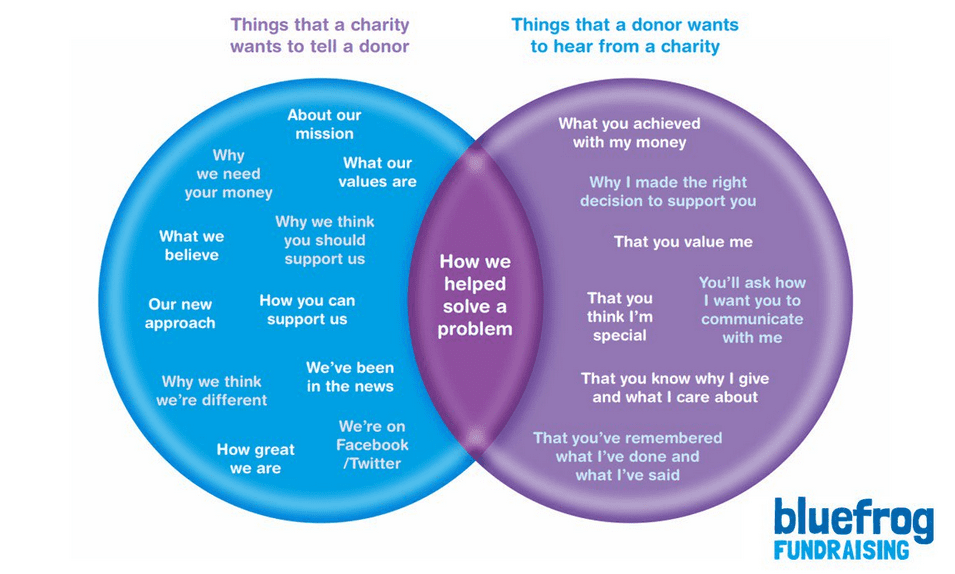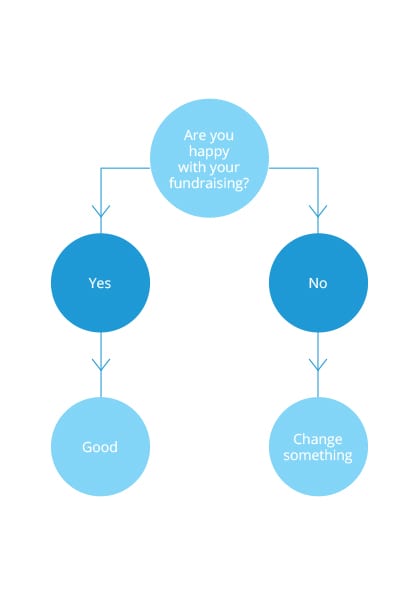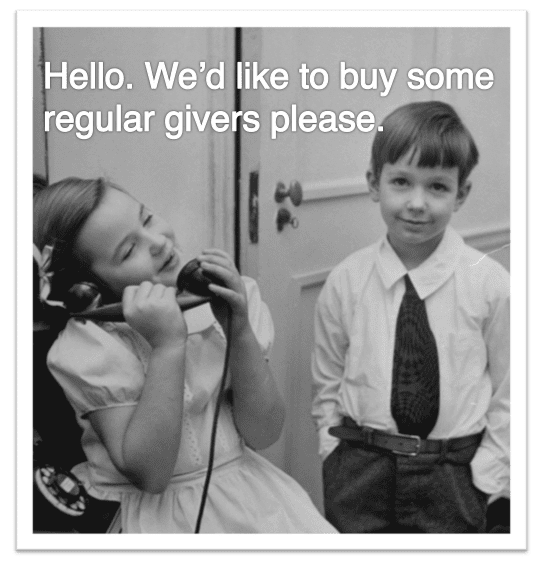The quiet disappearance of results-based fundraising
A well-respected consultant got in touch after I announced that I was planning to close Bluefrog and said something that struck a chord: the “pure” results-based agencies – like Bluefrog – are now few and far between.
It was a strange thing to hear. Surely if you aren’t results based, you aren’t a fundraising agency, so what are you doing even being considered for a fundraising job?
But the word, “pure,” stayed with me. It wasn’t just a compliment. It was a diagnosis of where we are, and perhaps, where we’ve gone wrong.
For decades, results-based agencies offered something rare and deeply valuable: accountability. Our work was measured not in pantone colours and typefaces, but in responses, retention, and revenue. If a campaign didn’t perform, at Bluefrog, we felt it. That model demanded clarity, precision, and most importantly, respect for donors. Because if your creative didn't resonate, your carefully constructed strategy fell flat, or your segmentation missed the mark, you knew about it immediately – and so did your clients.
Bluefrog was never about slick awards submissions or hoisting shiny balls to trap the unwary fundraiser. We were about fundraising that worked. Work rooted in insight, behavioural understanding, and data. And that meant standing shoulder to shoulder with our clients – not just during the strategy sessions and creative presentation, but through the anxious launch, the peaks and troughs of results coming in, and the deep dives into what we could do better next time.
The decline of this kind of agency isn't about nostalgia; it reflects, to my mind, a broader shift in the nonprofit sector. Increasingly, fundraising decisions are being made further from the coalface – by people focused on brand, advocacy, or innovation, often at the expense of direct donor response. Agencies are being selected for reasons that have little to do with performance. And I’ve heard more than once, “It was such a fun campaign to work on, and we won awards.” The award, it seems, makes it possible to gloss over the financial loss. And when things don’t go well? “We can blame it on the economy” someone will say, with no sense of regret or reflection on what could have been done differently.
The more nebulous the target, such as “a shift in awareness” or “a change in attitude to giving” - the more likely a brand agency is to promote it. Look at this, they’ll say, you’ve jumped ten places in this chart asking whether people have heard of you.But as we’ve seem time after time, that jump doth butter no parsnips.
That’s not to say creativity and strategy aren’t important. They are. But creativity untethered from outcome is decoration. And strategy that doesn’t deliver donations is just paperwork.
Just recently, Sir John Hegerty, shared Mark Ritson’s research on Cannes winners and the uncomfortable truth that most of the campaigns that won the most prestigious award for creativity in the advertising sector simply weren’t effective. The fact is this chase after accolades from peers at the expense of driving sales – or when it comes to fundraising, donations – seems to becoming endemic in the sector as the small and medium charities copy the big charities with the simple but false belief that “they wouldn’t do it if it didn’t work”.
If only that was true, wouldn’t life be so simple.
The fact is, a loss of focus on results is not just a professional misstep. It’s a moral one. Every pound or dollar left on the table represents work that can’t go ahead. It’s a person who goes without help. That reality is too often forgotten in rooms where decisions are made to spend millions on a short-lived - and short-remembered – brand campaign. Respect for donors should always be matched by respect for beneficiaries. If fundraising underperforms, real people lose out. That’s not theory. It’s fact.
The truth is, the donor hasn’t changed as much as we might like to think. People still give because they care, because they’re asked in the right way, and because they trust that their gift will make a difference. That clarity – that purity – should still be our North Star.
As I close this chapter at Bluefrog, and refocus on Mark Phillips Fundraising Associates, I’m going to make sure the focus on "pure" results-based doesn’t die. The sector needs it. Donors deserve it. And beneficiaries – those at the heart of every charity’s mission – absolutely depend on it.
Because in the end, fundraising isn’t about us. It’s about what we help make possible.
Tags In
The Essentials

Crack the Code to Regular Giving: Insights, Strategies, and a Special Giveaway!

‘Tis Halloween. Keep to the light and beware the Four Fundraisers of the Apocalypse!

Why do people give? The Donor Participation Project with Louis Diez.

A guide to fundraising on the back of a postcard

What does the latest research tell us about the state of fundraising?









